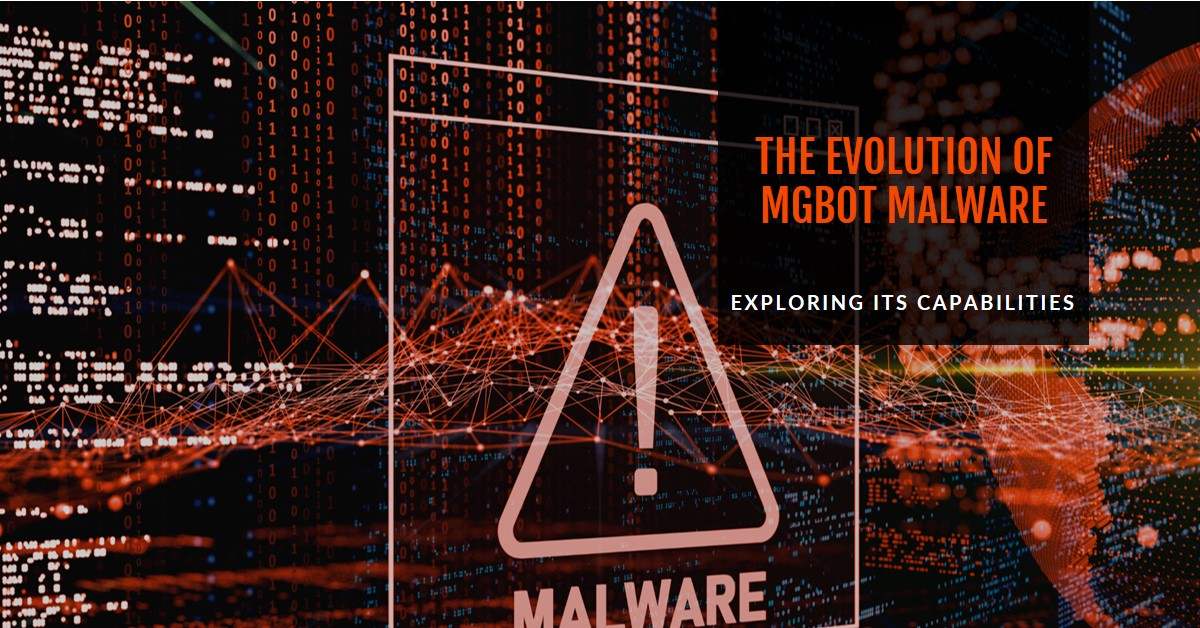
In today’s data-driven world, information is king. But with the vast ocean of websites and online content, finding the valuable insights you need can be a daunting task. This is where URL extraction emerges as a powerful tool, helping you navigate and organize the digital landscape.
Extracting URLs allows you to systematically gather links from various sources, unlocking valuable information across different fields:
- Market Research: Gain a deeper understanding of your industry by identifying competitor websites, analyzing market trends, and discovering potential customer resources.
- Cybersecurity: Protect your organization by extracting URLs for vulnerability scanning, detecting malicious links associated with malware, and investigating phishing attempts.
- Content Analysis: Gather targeted data for content creation by identifying relevant articles, blogs, and social media discussions on specific topics.
By mastering URL extraction techniques, you’ll equip yourself with the ability to harness the power of the web, gaining a competitive edge and driving innovation across various domains.
Your Key to Web Navigation and Analysis
URL extraction is the process of automatically identifying and collecting web addresses (URLs) from various sources like websites, documents, or emails. In the vast digital age, where information is scattered across countless web pages, URL extraction becomes a critical tool for organizing and accessing this valuable data.
Why is URL extraction so important?
- Information Overload: The internet is brimming with content. Extracting URLs allows you to focus on specific sets of data, streamlining your research and analysis.
- Automation and Efficiency: Manual searching for relevant websites can be time-consuming. URL extraction automates the process, saving you valuable time and effort.
- Data Gathering and Insights: Extracted URLs act as a roadmap to valuable information sources. Analyzing these URLs helps you uncover trends, identify competitors, and gain valuable insights.
How does URL extraction empower different professionals?
- Entrepreneurs: Gain a competitive edge by identifying industry trends, competitor websites, and potential customer resources through market research URL extraction.
- Cybersecurity Professionals: Enhance your organization’s security by extracting URLs for vulnerability scanning, detecting malicious links, and investigating phishing attempts.
The URL Extraction Advantage: Boosting Business and Bolstering Cybersecurity
URL extraction isn’t just a fancy tech term; it’s a game-changer for businesses and cybersecurity professionals alike. Let’s delve into how extracting URLs can supercharge your efforts in both domains:
Business Benefits:
- Market Analysis on Autopilot: Imagine having a constant stream of relevant industry data at your fingertips. URL extraction automates the process of finding competitor websites, industry blogs, and news articles, allowing you to analyze market trends and identify potential opportunities.
- Know Your Competitors Inside Out: By extracting URLs from competitor websites, you can glean valuable insights into their marketing strategies, product offerings, and customer base. This intel empowers you to refine your own strategies and gain a competitive edge.
- Unearthing Customer Resources: Discover valuable resources frequented by your target audience. By extracting URLs from forums, social media groups, and review sites, you can understand customer pain points, preferences, and online behavior, informing your product development and marketing efforts.
Cybersecurity Strength:
- Threat Analysis on a Larger Scale: URL extraction is a powerful tool for threat analysis. By automatically extracting URLs from suspicious emails or downloaded files, cybersecurity professionals can identify and investigate potential threats much faster.
- Phishing Exposed: Stop Malicious Links in Their Tracks: Phishing emails often rely on cleverly disguised URLs to trick users into revealing sensitive information. URL extraction can help identify these malicious links, allowing cybersecurity teams to block them and prevent phishing attacks.
- Vulnerability Scanning Made Efficient: Extracting URLs from websites and web applications helps identify potential vulnerabilities that attackers might exploit. This proactive approach strengthens your organization’s cybersecurity posture.
Basic Techniques for URL Extraction:
Now that you understand the power of URL extraction, let’s explore some fundamental methods to get you started:
1. Manual Extraction: The Old-Fashioned Way
Sometimes, the simplest approach is the best. Here’s how to manually extract URLs:
- Copy and Paste: This might seem obvious, but it’s a practical method for extracting a small number of URLs from web pages, emails, or documents. Simply highlight the URL, right-click, and copy it.
- Browser Extensions: Several browser extensions simplify manual extraction. These extensions often allow you to highlight a section of text containing URLs and automatically extract them all with a single click.
2. Simple Scripts and Software: Automating Your Workflow
As the number of URLs you need to extract increases, manual methods become tedious. Here’s where basic automation comes in:
- Simple Scripts: For those comfortable with coding, basic scripts can be written using languages like Python or JavaScript to automate URL extraction from websites. These scripts can search for specific patterns within the website’s HTML code, identifying and collecting the URLs.
- Free and Open-Source Software: There are various free and open-source software options available that offer basic URL extraction functionalities. These tools might have user-friendly interfaces and allow you to extract URLs from various sources like web pages or text files.
Advanced URL Extraction Tools and Software: Power Up Your Workflow
When basic techniques fall short, a world of advanced URL extraction tools and software awaits. These tools offer a plethora of features designed for efficiency, accuracy, and handling complex tasks:
- Feature Focus:
- Advanced Filtering: Go beyond simple text matching. Filter extracted URLs based on specific criteria like keywords, domain names, or file types, ensuring you capture only the most relevant data.
- Dynamic URL Handling: The web is full of dynamic URLs generated by scripts. Advanced tools can handle these dynamic URLs, ensuring a comprehensive extraction even on complex websites.
- Data Export Options: Easily export your extracted URLs into various formats like CSV, Excel, or JSON for further analysis and integration with other tools.
- Accuracy Matters:
- Regular Expressions: Leverage the power of regular expressions to precisely target specific URL patterns, minimizing the risk of irrelevant data extraction.
- Duplicate Removal: Advanced tools can identify and eliminate duplicate URLs, ensuring your data set is clean and concise.
- Efficiency Reigns Supreme:
- Multi-Threaded Processing: Extract URLs from multiple sources simultaneously, significantly reducing processing time for large datasets.
- Scheduling and Automation: Schedule automated URL extraction tasks to run at specific times or intervals, freeing you from manual intervention.
Exploring the Options:
There’s a vast array of advanced URL extraction tools available, catering to different needs and budgets. Here are some considerations:
- Paid Software: Often offers a wider range of features, enhanced accuracy, and robust support options.
- Free and Open-Source Software: Provides a cost-effective entry point with basic functionalities. Great for learning and smaller-scale projects.
Choosing the Right Tool:
The ideal tool depends on your specific requirements. Consider factors like the complexity of your target websites, the volume of data you need to extract, and your budget.
Implementing URL Extraction: Streamlining Your Workflow
Now that you’re armed with the knowledge of URL extraction techniques and tools, let’s explore how to seamlessly integrate them into your business operations or cybersecurity practices:
Automation is Key:
- Schedule Regular Extractions: Automate URL extraction tasks to run at specific intervals, ensuring you have up-to-date data for market analysis, competitor research, or threat detection.
- Integrate with Existing Tools: Many URL extraction tools offer integrations with popular business intelligence or cybersecurity platforms. This allows you to automatically feed extracted URLs into your existing workflow for further analysis.
Data Management Strategies:
- Organize for Efficiency: Develop a system for organizing your extracted URLs. Categorize them based on purpose (market research, competitor analysis, etc.) or source (websites, emails, etc.) for easy retrieval and analysis.
- Data Cleaning and Filtering: After extraction, it’s crucial to clean your data set. Remove irrelevant or duplicate URLs to ensure the accuracy of your analysis. Tools with filtering options can streamline this process.
- Version Control (Optional): If you’re working with large datasets or conducting ongoing research, consider implementing version control to track changes and revert to previous versions if needed.
Business Operations Example:
Imagine you’re a marketing manager tasked with staying ahead of industry trends. You can:
- Schedule weekly extraction of URLs from relevant industry blogs and news websites.
- Integrate the extracted URLs with your marketing analytics platform.
- Analyze the data to identify emerging trends and adjust your marketing strategies accordingly.
Cybersecurity Example:
A cybersecurity professional can leverage URL extraction to:
- Automate the extraction of URLs from suspicious emails.
- Integrate with a threat intelligence platform to analyze the extracted URLs and identify potential phishing attempts or malware threats.
- Block malicious URLs and take necessary steps to protect the organization’s network.
Ethical Considerations and Best Practices: Responsible URL Extraction
While URL extraction offers undeniable benefits, it’s crucial to approach it ethically and responsibly. Here’s a breakdown of key considerations:
Privacy Concerns:
- Respect Robots.txt: Websites often have a robots.txt file that instructs crawlers (automated programs that extract data) on which pages or files they should not access. Respecting robots.txt ensures you’re not overloading a website’s server or scraping data the owner doesn’t want accessed.
- Avoiding Personal Information: Refrain from extracting URLs that contain personal information like usernames, email addresses, or private messages. This protects user privacy and avoids potential legal issues.
Legal Implications:
- Copyright and Fair Use: Be mindful of copyright restrictions. Extracting URLs for personal research or analysis might fall under fair use, but scraping data for commercial purposes without permission might violate copyright laws.
- Data Ownership: Understand that the data extracted from URLs might belong to the website owner. Ensure you have the right to use the data according to the website’s terms of service or by obtaining explicit permission.
Best Practices for Responsible Use:
- Transparency: If you’re extracting URLs from a website, be transparent about your purpose. Consider including a privacy policy on your website or app if you’re using extracted data.
- Respect Rate Limits: Many websites implement rate limits to prevent overloading their servers. Be mindful of these limits and adjust your extraction frequency accordingly.
- Focus on Public Data: Prioritize extracting URLs from publicly available information. Refrain from targeting private areas of websites or user accounts.
Case Studies: URL Extraction in Action
Business Insights Triumph:
- A Market Research Firm: Company X leverages URL extraction to gather data for a market research project on the fitness industry. They extract URLs from relevant blogs, social media groups, and online fitness communities. Analyzing these URLs uncovers popular fitness trends, competitor offerings, and potential customer pain points. This data empowers them to create targeted marketing campaigns and develop innovative fitness products.
Cybersecurity Measures Fortified:
- A Financial Institution: Company Y utilizes URL extraction as part of its cybersecurity strategy. They extract URLs from suspicious emails received by employees. Integration with a threat intelligence platform allows them to identify malicious URLs associated with phishing attempts or malware distribution. This proactive approach helps prevent financial losses and protects sensitive customer data.
Bonus Case Study: Content Creation Powerhouse:
- A Content Marketing Agency: Agency Z uses URL extraction to streamline content creation for its clients. They extract URLs from industry publications, competitor websites, and popular social media discussions related to the client’s niche. This curated list of relevant sources provides a springboard for content creation, ensuring their blog posts and social media content are fresh, informative, and address current industry trends.
These are just a few examples of how URL extraction has transformed various fields. As technology advances, we can expect even more innovative applications of this powerful data gathering technique.
Future of URL Extraction: A Glimpse into the Evolving Landscape
The world of URL extraction is constantly evolving, and advancements in artificial intelligence (AI) and machine learning (ML) are poised to significantly reshape the landscape for both entrepreneurs and cybersecurity professionals. Let’s delve into some emerging trends that might change the game:
- Enhanced Accuracy and Pattern Recognition: AI and ML algorithms can learn from vast amounts of data, allowing them to identify complex URL patterns and extract relevant information with unmatched accuracy. This not only improves efficiency but also opens doors for extracting data from previously challenging websites.
- Contextual Understanding: Imagine URL extraction tools that can not only identify URLs but also understand the context in which they appear. This contextual intelligence could revolutionize market research by allowing entrepreneurs to glean deeper insights into customer behavior and competitor strategies.
- Automatic Sentiment Analysis: By analyzing the text surrounding extracted URLs, AI-powered tools could automatically identify positive or negative sentiment. This would be a game-changer for businesses, enabling them to gauge customer sentiment towards competitor products or industry trends.
- Advanced Threat Detection for Cybersecurity: Machine learning can continuously analyze extracted URLs, identifying subtle patterns that might indicate phishing attempts or malware distribution. This proactive approach would significantly enhance cybersecurity measures for organizations.
- Real-Time Extraction and Monitoring: The future might hold URL extraction tools that operate in real-time, constantly monitoring data streams and extracting relevant URLs as they appear. This would provide entrepreneurs and cybersecurity professionals with up-to-the-minute insights and the ability to react quickly to emerging threats or market trends.
The Impact on Entrepreneurs and Cyber Professionals:
These advancements in URL extraction powered by AI and ML will empower both entrepreneurs and cybersecurity professionals in exciting ways:
- Entrepreneurs: Gain deeper market insights, identify new customer segments, and stay ahead of the competition with improved URL extraction capabilities.
- Cybersecurity Professionals: Strengthen defenses against cyber threats through real-time threat detection and automatic URL analysis.
Mastering the Art of URL Extraction – A Key to Success
we’ve explored the exciting world of URL extraction, unveiling its potential to transform various domains. From market research and competitor analysis for entrepreneurs to threat detection and enhanced cybersecurity for professionals, URL extraction empowers you to navigate the vast ocean of web data with efficiency and precision.
Key Takeaways:
- URL extraction is a powerful tool for gathering valuable data from the web, providing insights for informed decision-making.
- By leveraging URL extraction techniques, entrepreneurs can gain a competitive edge through market research, competitor analysis, and content creation strategies.
- Cybersecurity professionals can significantly enhance security measures by using URL extraction for threat analysis, phishing detection, and vulnerability scanning.
- Integrating URL extraction with automation and data management practices ensures a streamlined workflow and maximizes the value of extracted data.
Embrace the Power, Drive Innovation:
As you embark on your journey of mastering URL extraction, remember:
- Ethical considerations and responsible practices are paramount. Respect privacy concerns and legal implications.
- The future of URL extraction is bright, with AI and machine learning promising even greater accuracy, pattern recognition, and real-time data analysis.
Call to Action: Unleash the Potential
Don’t wait to harness the power of URL extraction! Here’s your call to action:
- Start experimenting with different URL extraction techniques and tools. Explore both basic manual methods and advanced software options to find what suits your needs.
- Stay updated with the latest trends and technologies in the field. There’s a wealth of online communities and forums dedicated to URL extraction, offering valuable resources and opportunities to connect with other users.
At Maagsoft Inc, we are your trusted partner in the ever-evolving realms of cybersecurity, AI innovation, and cloud engineering. Our mission is to empower individuals and organizations with cutting-edge services, training, and AI-driven solutions. Contact us at contact@maagsoft.com to embark on a journey towards fortified digital resilience and technological excellence.





